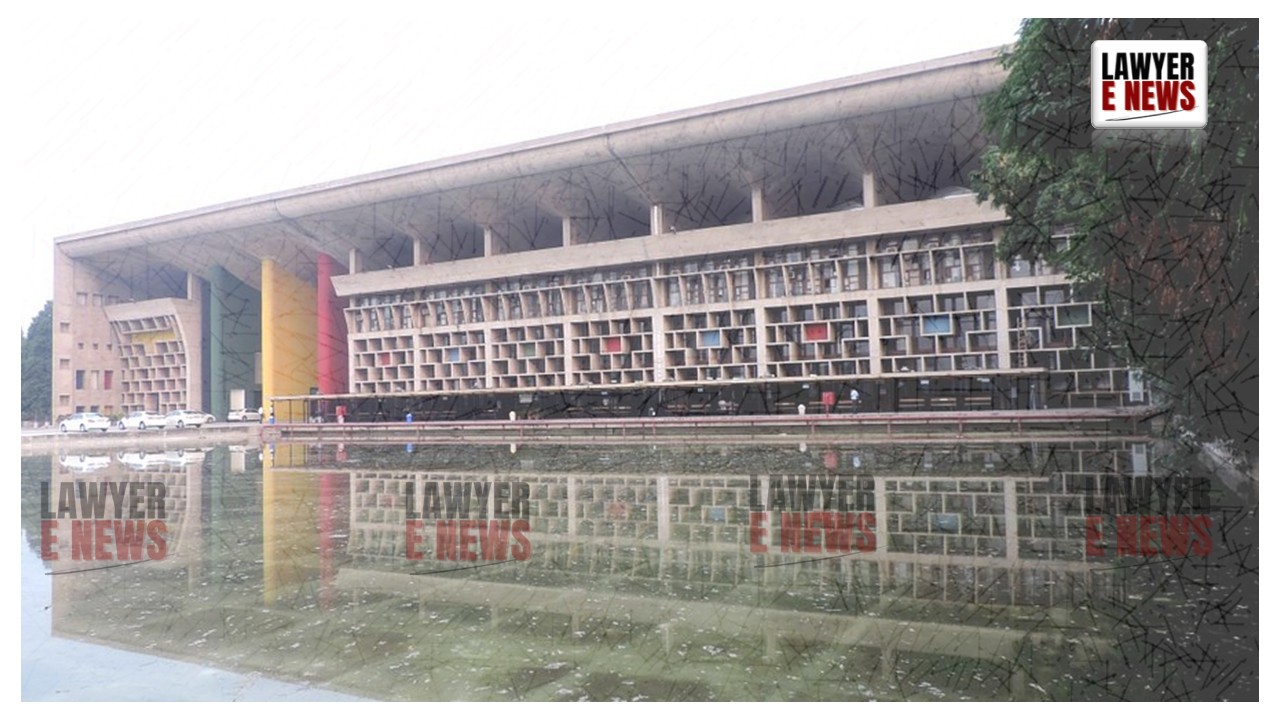-
by Admin
15 February 2026 5:35 AM



Punjab & Haryana High Court, comprising Justice Sureshwar Thakur and Justice Kirti Singh, delivered an important judgment in the case of Arun Kumar Gupta & Others v. M/s Karnal Motors Pvt. Ltd. The Court allowed an appeal filed under Section 19 of the Contempt of Courts Act, 1971, and quashed an order of the Contempt Bench that had indicated a proclivity to punish the appellants for alleged non-compliance with judicial directions. This judgment is significant for its emphasis on the procedural safeguards in contempt proceedings, the proper scope of contempt jurisdiction, and the relationship between Lok Adalat awards and contempt enforcement.
The case originated from a long-standing dispute concerning land acquisition notifications issued in 1992 under Sections 4 and 6 of the Land Acquisition Act, 1894, for commercial development in Kurukshetra. The land acquisition process culminated in an award in 1995. Subsequently, a Lok Adalat, in 2000, directed the exclusion of certain lands from acquisition proceedings. The original landowners later sold the land to the respondent, M/s Karnal Motors Pvt. Ltd., in 2004. Disputes arose when the land was mutated in favor of Haryana Shahari Vikas Pradhikaran (HSVP), and subsequent representations for correction of the revenue record were rejected. The respondent filed a writ petition in 2022, resulting in a High Court order directing the competent authority to pass a speaking order on the representation. The authority rejected the representation in January 2024, prompting the respondent to initiate contempt proceedings.
The Single Judge of the High Court issued an order in September 2024 in a subsequent contempt petition, indicating a proclivity to impose punishment on the appellants for alleged non-compliance with judicial directions. This order was challenged by the appellants under Section 19 of the Contempt of Courts Act, 1971, asserting that the proceedings were unwarranted as there had been no willful disobedience. They further argued that the speaking order rejecting the representation had rendered the Lok Adalat award inoperative, and any dispute over compliance should have been resolved through execution or proper legal remedies.
The Division Bench upheld the maintainability of the appeal under Section 19, relying on the precedent set in Midnapore Peoples’ Coop. Bank Ltd. v. Chunilal Nanda (2006) 5 SCC 399. It clarified that an appeal is maintainable not only against a final order imposing punishment for contempt but also against any order that indicates a proclivity to punish the alleged contemnor. The Court observed that the Single Judge’s order, though not a final order of punishment, demonstrated an inclination to proceed with contempt without adequately considering procedural safeguards.
The Division Bench strongly emphasized the procedural irregularities in the contempt proceedings. It noted that the Single Judge had failed to frame specific charges against the alleged contemnors or provide an opportunity for the appellants to present their defenses. Citing Rule 10 of the Contempt of Court (Punjab and Haryana) Rules, 1974, the Court reiterated that proper procedural norms must be followed in contempt cases, including the framing of charges and allowing the contemnor to file a reply on affidavit. The absence of such procedural safeguards rendered the order unsustainable.
The Court further clarified the distinction between contempt jurisdiction and execution mechanisms. Referring to the Supreme Court’s decision in R.N. Dey v. Bhagyabati Pramanik (2000) 4 SCC 400, it held that contempt jurisdiction cannot be invoked to enforce orders or resolve substantive disputes. The proper remedy for the respondent was to challenge the speaking order rejecting the representation or pursue execution proceedings, rather than invoking contempt jurisdiction. The Court stressed that contempt is a drastic power meant to uphold the dignity of judicial orders and should not be misused as a tool for execution or for bypassing proper legal remedies.
In addressing the issue of whether the Lok Adalat award could form the basis of contempt proceedings, the Court held that Lok Adalat awards, while binding, lack the definitive judgment authority of court orders. Citing the Supreme Court’s decision in Brajnandan Sinha v. Jyoti Narain AIR 1956 SC 66, the Bench observed that Lok Adalats do not have the trappings of a court, and their awards cannot be enforced through contempt jurisdiction. The Bench further stated that the Lok Adalat award in this case had been subsumed by the speaking order rejecting the representation. Since the speaking order had not been challenged, it acquired conclusivity and rendered the Lok Adalat award inoperative for the purposes of enforcement or contempt.
The Court ultimately concluded that the impugned order passed by the Single Judge was procedurally flawed and lacked jurisdictional basis. It quashed the order and discharged the appellants from the contempt proceedings. The Bench also directed the Contempt Bench to adhere strictly to procedural norms in future cases and to avoid bypassing established principles of law.
This judgment reinforces the principles of procedural fairness and judicial discipline in the exercise of contempt jurisdiction. It underscores the distinction between contempt proceedings and execution mechanisms, clarifies the limits of Lok Adalat awards in the context of contempt enforcement, and emphasizes the need for judicial restraint in exercising the extraordinary power of contempt. The ruling also serves as a reminder to lower courts to strictly follow procedural safeguards and established precedents when dealing with contempt matters.
Date of Decision: January 16, 2025
